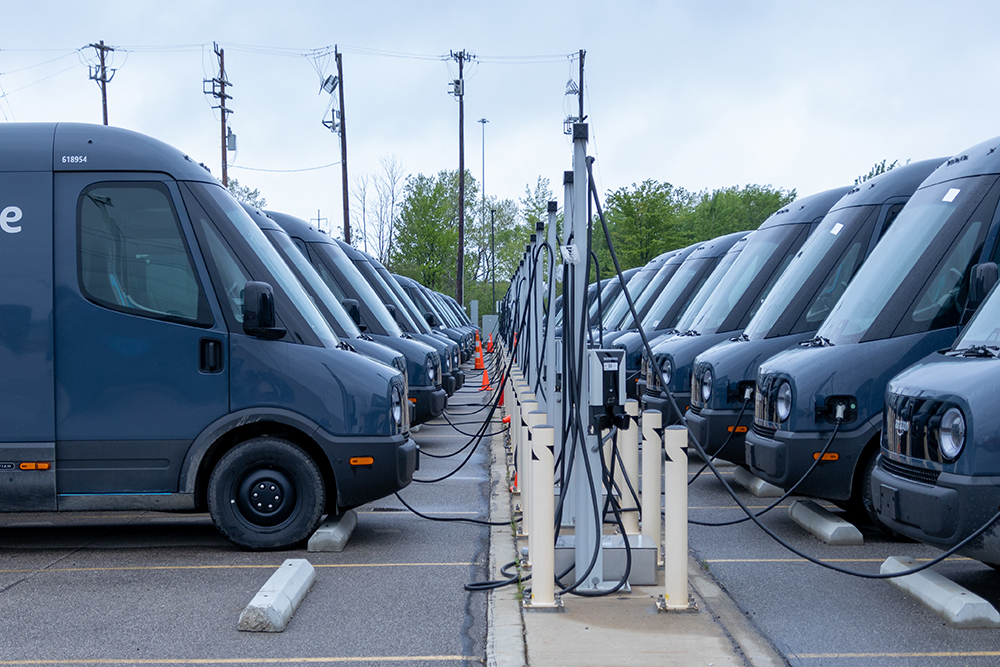
As companies like yours seek ways to cut costs, improve efficiency, and reduce their environmental impact, fleet electrification has emerged as a powerful solution. Transitioning from gas-powered to electric vehicles (EVs) can provide significant savings on fuel and maintenance while positioning your company as a leader in sustainability. But making the switch requires careful planning to maximize the benefits.
Why Electrify Your Fleet?
1. Lower Operational Costs
Fuel is one of the biggest expenses for fleet operations. By switching to EVs, companies can reduce fuel costs by up to 50%, depending on electricity rates. Additionally, EVs have fewer moving parts, meaning lower maintenance costs—no oil changes, fewer brake replacements, and less wear and tear.
2. Sustainability & Compliance
Governments are rolling out stricter emissions regulations and offering incentives for EV adoption. Fleet electrification helps businesses meet environmental standards while improving their brand image as an eco-conscious company.
3. Long-Term ROI
While EVs may have higher upfront costs, tax incentives, fuel savings, and reduced maintenance expenses contribute to a strong return on investment. Many companies see a full payback within a few years.
What to Plan For
1. Charging Infrastructure
- Determine whether on-site charging stations are needed. Level 2 chargers are sufficient for overnight charging, while DC fast chargers may be required for fleets with high mileage.
- Partner with an electrical contractor to assess your facility’s electrical capacity and upgrade it if necessary.
If you’re in Southern California, one program to strongly consider is Southern California Edison’s (SCE) Charge Ready Program. It offers businesses and property owners a powerful opportunity to install EV charging stations with significant financial and technical support. Designed for workplaces, commercial properties, and multi-family housing, the program provides rebates, infrastructure assistance, and expert guidance to make the transition to electric vehicle charging easy and cost-effective. By participating, companies can attract more customers and tenants, enhance property value, and demonstrate a commitment to sustainability. For full details and to apply, visit sce.com/evbusiness/chargeready.
2. Vehicle Selection & Range Considerations
- Choose vehicles based on your daily mileage needs. Most commercial EVs now offer 200+ miles of range, making them viable for most fleet operations.
- Consider payload and towing capacity—electric trucks and vans are catching up in performance.
3. Incentives & Grants
- Look for federal, state, and local tax credits and rebates that can significantly reduce the cost of EVs and charging stations.
- Some utility companies offer reduced electricity rates or rebates for installing chargers.
4. Energy Management
- Work with your electrical contractor to evaluate your site’s power requirements. Adding multiple EV chargers may require panel upgrades or demand response strategies to avoid peak-hour surges.
- Explore solar + battery storage solutions to offset electricity costs and increase energy independence.
5. Employee Training & Adoption
- Educate your drivers on efficient EV driving habits to maximize range.
- Train maintenance teams on EV-specific servicing or partner with certified technicians.
Get Started with an Expert Partner
Electrifying your fleet isn’t just about swapping gas engines for batteries—it’s a strategic shift that requires proper planning, infrastructure, and expertise. Our team of licensed electrical contractors specializes in EV charging installations, power system upgrades, and fleet electrification strategies. Ready to make the switch? Contact us today for a fleet electrification consultation and take the first step toward a more cost-effective, sustainable future.